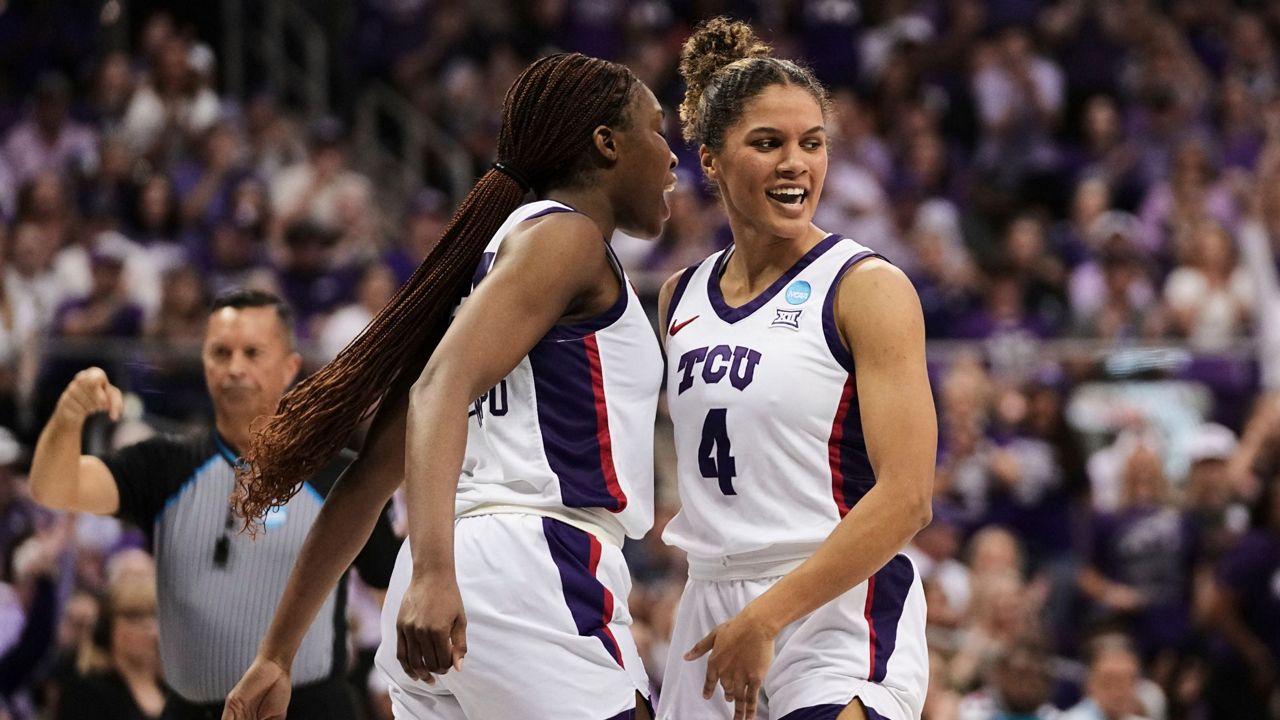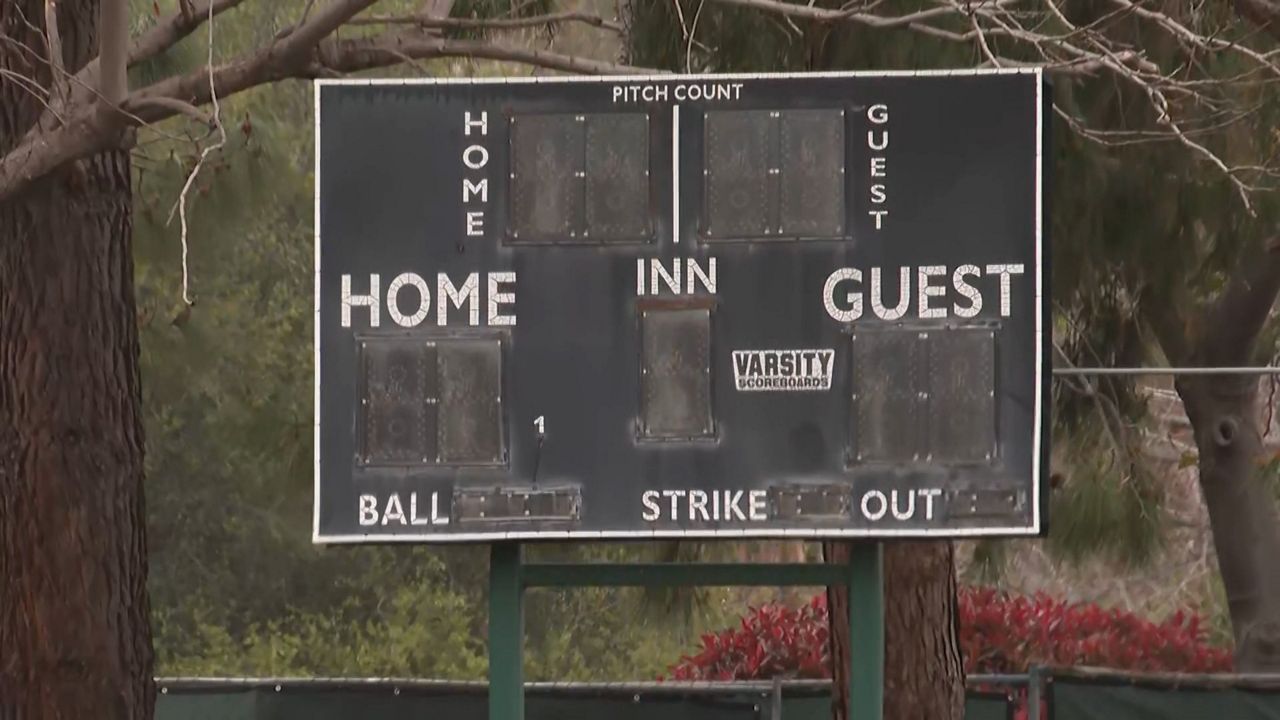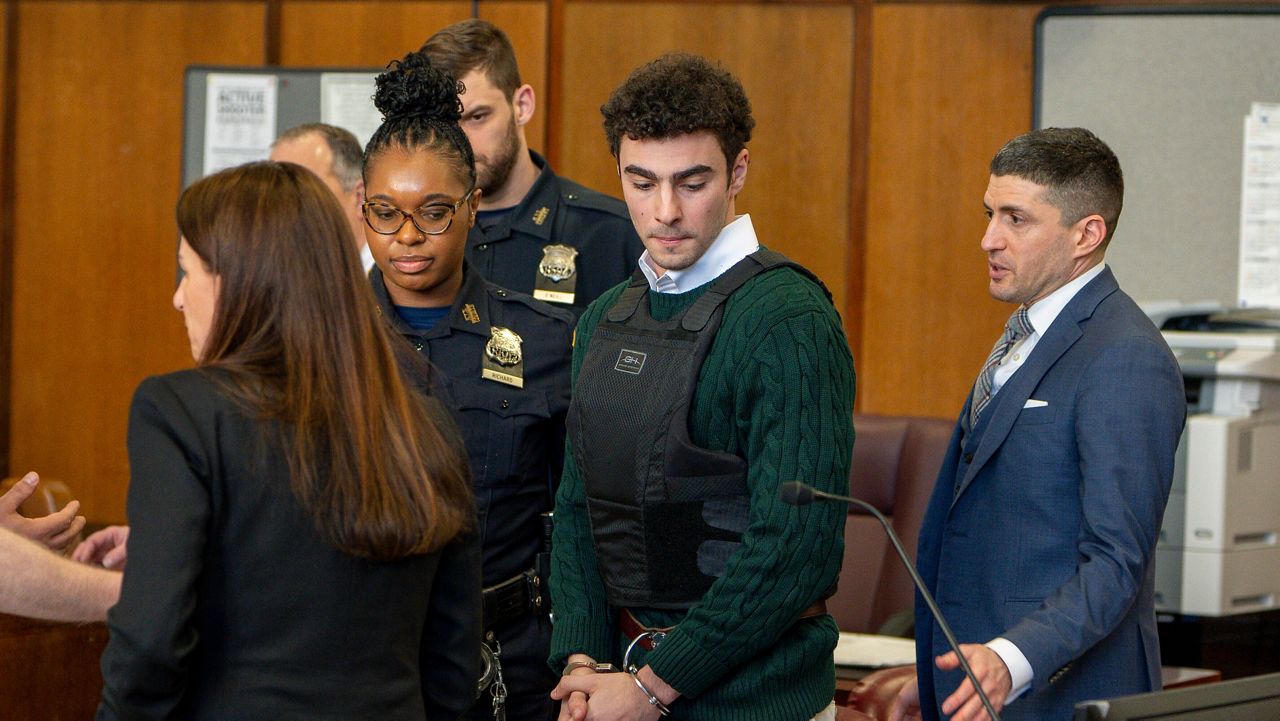SAN DIEGO — Scientists in San Diego are trying to program the body’s cells to target and destroy cancer.
Keeping busy while she’s battling breast cancer helps Janelle Franca Correia keep a sense of normalcy.
“In hairdressing, it’s very personal. So, like they are sharing with me, it’s not all me sharing with them, which is great,” she said.
Correia says there was no history of breast cancer in her family, so her Stage 3 diagnosis came as a shock. She underwent a double mastectomy in August, removing part of her pectoral muscle and 12 lymph nodes.
“When they first tell you it’s more like, 'OK, I’ll figure it out.' I’m shocked. You’re in more of a delayed response,” Correia said. “And then when you start booking those appointments with oncologists, with surgeons, then it’s a little bit more like, 'Oh, this is like my life now.'"
According to the American Cancer Society, breast cancer is the second leading cause of cancer-related death in women. It is the most common cancer in women in the United States after skin cancer. It makes up about 30% (or 1 in 3) of all new female cancer cases each year.
Professor Daniel Hollern is a tumor immunologist at the Salk Institute. He’s trying to figure out how to hard-wire the immune system’s B cells to kill every cancer cell in a tumor. His research is deeply personal since his grandfather and uncle were each diagnosed with a different type of cancer.
“I remember being devastated by the news and also feeling that this was very unfair that there were no treatments available to help them,” Hollern said.
He said B cells are important for developing new cancer immunotherapies because they can paint a target on tumor cells to mark it for destruction by the immune system. Their research also shows that B cells secrete antibodies instructing our immune system to eliminate cancer cells.
Hollern’s lab received a grant from Susan G. Komen, the world’s leading breast cancer organization, to fund new research projects focused on improving patient outcomes — particularly for people with the most aggressive breast cancers or who have experienced a recurrence or metastasis. Hollern hopes to develop a treatment that is effective, less painful and more affordable for cancer patients in the future.
“With immunotherapy, there is the hope that we won’t need to use chemotherapy anymore and we can spare patients of these harsh side effects,” he said.
Correia’s fight isn’t over. She said she still needs to undergo radiation to help reduce the cancer from spreading.
Correia hopes for a full recovery and a gentler option for future fighters.
“You still have to have a quality of life. I still have to take care of my kids, I still have to go to work, even while I’m going through these treatments or recovering from double mastectomy,” Correia said. “I think anything that’s going to be less invasive would be helpful.”
Correia encourages everyone to get a mammogram and advocate for their health.













